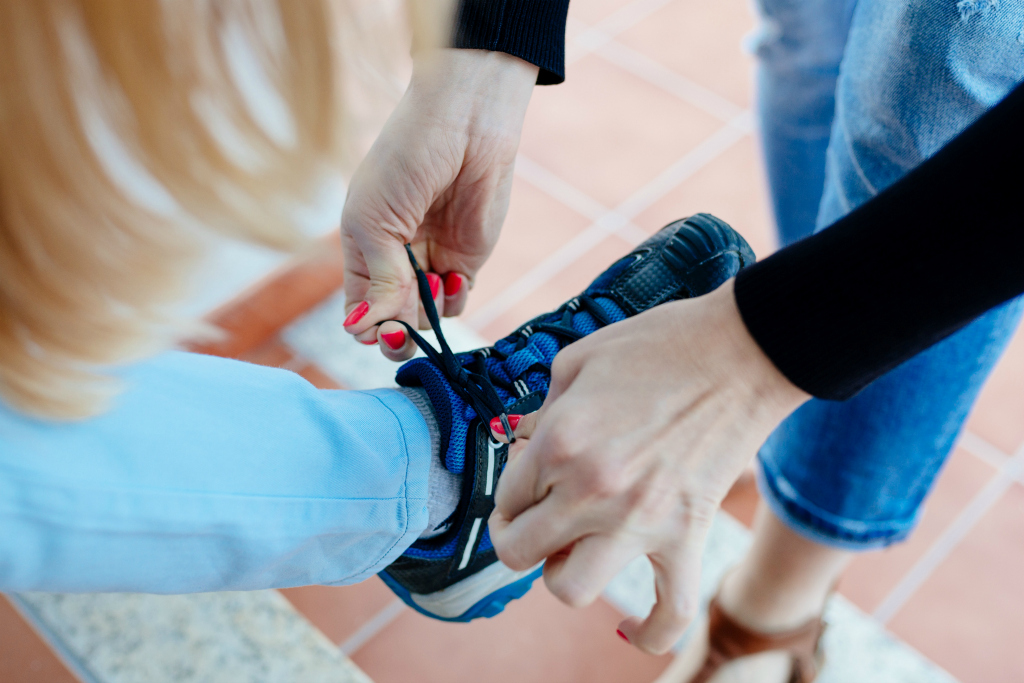
Is Over-Parenting Sabotaging Your Athlete’s Success?
Is Over-Parenting Sabotaging Your Athlete’s Success?
I was keeping them from experiencing any discomfort
Several years ago I was late to pick up my kids from school. I left work early, rushed to Jamba Juice for pre-practice smoothies, and got to their school about fifteen minutes late. By their reactions, you would have thought I had just committed a horrible crime. Their three little faces scrunched up angry and in disbelief they had to wait.
That night, reflecting on their ridiculous reaction, I realized I had done this to myself. In my mind, being a good mom meant putting a great deal of time, care and thought into making sure all of their needs were met, and met quickly. I’d set out healthy snacks for them before they even got hungry, carried extra jackets, flip flops, granola bars, and water in the car … just in case they were hot, cold, hungry or thirsty. You get the picture. I was anticipating their every need before they even knew they had one. Then I had my aha moment in front of the school that day. I wasn’t helping them, I was hurting them.
My Daughter Quit Sports and This Is What I Want Parents To Know
They did not know how to be uncomfortable. I had rarely allowed them that opportunity.
Hundreds of books and articles have been written on the subject of grit and the lack of it in our kids today. They need to be uncomfortable; they need disappointment and they need a lot of practice at handling these feelings when they arise. The effects of “helicopter” moms and over-parenting directly translates to their sports. If we deny them opportunities to be uncomfortable and deny them the learning that they can handle tough situations in their everyday lives, then they will not be able to tolerate being uncomfortable in their sports either.
Pushing through discomfort is how you become a great athlete or reach your potential. A GOOD athlete can joyfully attend every practice and training, but those who are consistently uncomfortable will eventually surpass the others.
In his book, The Mindful Athlete, author George Mumford (who is famous for helping Phil Jackson and Kobe Bryant with his approach to mindfulness and sports), says athletes need to find a place right between comfort and discomfort and live there. Philosopher, Brian Johnson described it in a recent video as being like a rubber band. You can pull it, but if you pull it too hard it will snap and if you don’t pull it hard enough, it is limp. For athletes to improve, they need to live in that sweet spot, putting some stress on the band, but not breaking it. It’s the only way to reach one’s potential. This can look like many different things; extra training outside of practice to work on areas they are struggling or deficient (even ten-minutes a day), pushing themselves harder and out of their comfort zones during practice, spending time studying video when they’d rather be on SnapChat, trying new things in practice and games that make them uncomfortable, extra fitness training, asking the coach to stay after for ten-minutes to work on areas they need help with, or training once a week with a more advanced team. These are just a few examples, but you get the picture, not taking the easy, comfortable path. Imagine if they did that for several years, how much their talent and skills will have expanded, these tiny incremental gains, over time will be huge.
1% grows to 1oo fast
In a recent blog, Coaching expert, JP Nerbun, spoke about about 1% growth, a phrase that coaches throw around a lot: “Let’s just work to get 1% better today.” The truth is, this can and will translate to be a HUGE amount of growth. If anyone improves by 1% consistently, every single day, for a long time, then they would be insanely talented, regardless of where they started.
How Often Should My Teenager Workout?
Everyone has potential to be great or at least good, but it’s not enough to just have it. If your kid has big dreams or goals, they should focus on the process of getting 1% better each time they train. And as parents, our job is to step back, and allow them to experience the discomfort, and try not try to protect or shield them from difficult or challenging times, because that is where the growth happens.











